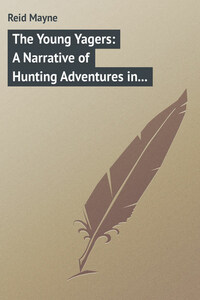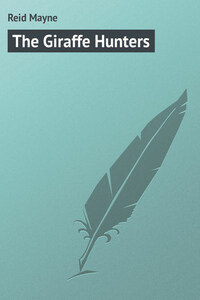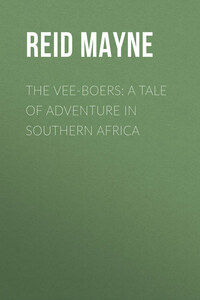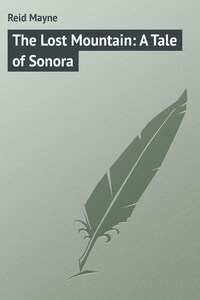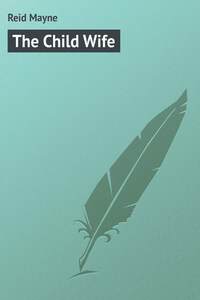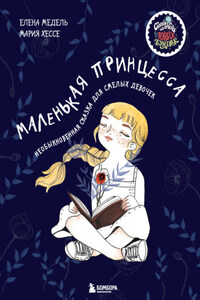Chapter One.
The Camp of the Young Yägers
Near the confluence of the two great rivers of Southern Africa – the Yellow and Orange– behold the camp of the “young yägers!”
It stands upon the southern bank of the latter stream, in a grove of Babylonian willows, whose silvery foliage, drooping gracefully to the water’s edge, fringes both shores of the noble river as far as the eye can reach.
A tree of rare beauty is this Salix Babylonica– in gracefulness of form scarce surpassed even by the palms, the “princes of the forest.” In our land, as we look upon it, a tinge of sadness steals over our reflections. We have grown to regard it as the emblem of sorrow. We have named it the “weeping willow,” and draped the tomb with its soft pale fronds, as with a winding-sheet of silver.
Far different are the feelings inspired by the sight of this beautiful tree amid the karoos of Southern Africa. That is a land where springs and streams are “few and far between;” and the weeping willow – sure sign of the presence of water – is no longer the emblem of sorrow, but the symbol of joy.
Joy reigns in the camp under its shade by the banks of the noble Orange River, as is proved by the continuous peals of laughter that ring clear and loud upon the air, and echo from the opposite shores of the stream.
Who are they that laugh so loudly and cheerfully? The young yägers.
And who are the young yägers?
Let us approach their camp and see for ourselves. It is night, but the blaze of the camp-fire will enable us to distinguish all of them, as they are all seated around it. By its light we can take their portraits.
There are six of them – a full “set of six,” and not one appears to be yet twenty years of age. They are all boys between the ages of ten and twenty – though two or three of them, and, maybe, more than that number, think themselves quite men.
Three of the party you will recognise at a glance as old acquaintances. They are no other than Hans, Hendrik, and Jan, our ci-devant “Bush-boys.”
It is several years since we saw them last, and they have grown a good deal since then; but none of them has yet reached the full stature of manhood. Though no longer “Bush-boys,” they are yet only boys; and Jan, who used to be called “little Jan,” still merits and receives that distinctive appellation. It would stretch Jan to his utmost to square off against a four-foot measuring-stick; and he could only manage it by standing upon the very tips of his toes.
Hans has grown taller, but, perhaps, thinner and paler. For two years he has been at college, where he has been very busy with his books, and has greatly distinguished himself by carrying off the first prizes in everything. Upon Hendrik there is a decided change. He has outgrown his elder brother both in length and breadth, and comes very near looking like a full-grown man. He is yet but eighteen years old, straight as a rush, with a decided military air and gait. The last is not to be wondered at, as Hendrik has now been a cornet in the Cape Mounted Rifles for more than a year, and still holds that commission, as may be learnt by looking at his forage-cap, with its golden embroidery over the peak. So much for our old acquaintances the “Bush-boys!”
But who are the other three that share with them the circle of the camp-fire? Who are their companions? for they are evidently on terms of companionship, and friendship too. Who are they? A word or two will tell that. They are the Van Wyks. The three sons of Diedrik Van Wyk.
And who, then, is Diedrik Van Wyk? That must also be explained. Diedrik is a very rich boor – a “vee-boor” – who every night shuts up within his spacious kraals more than three thousand horses and horned cattle, with five times that number of sheep and goats! In fact, Diedrik Van Wyk is accounted the richest vee-boor, or grazier, in all the Graaf Reinet.
Now the broad plaatz, or farm, of Diedrik Van Wyk lies contiguous to that of our old acquaintance, Hendrik Von Bloom; and it so chances that Hendrik and Diedrik are fast friends and inseparable companions. They see each other once a-day, at the least. Every evening Hendrik rides over to the “kraal” of Diedrik, or Diedrik to that of Hendrik, to enjoy a smoke together out of their ponderous pipes of meerschaum, or a “zoopje” of brandewyn distilled from their own peaches. They are, in fact, a pair of regular old comrades, – for Van Wyk in early life has seen military service as well as Von Bloom, – and, like all old soldiers, they love to repeat their camp stories, and “fight their battles o’er again.”
Under such circumstances it is not to be wondered at, that the children of both should be intimate acquaintances. But, in addition to the friendship of their fathers, there is a tie of relationship between the two families, – the two mothers were cousins, – so that the children are what is usually termed second cousins, – a very interesting sort of affinity. And it is not an unlikely thing that the relationship between the families of Von Bloom and his friend Van Wyk may one day become still closer and more interesting; for the former has for his daughter, as all the world knows, the beautiful flaxen-haired cherry-cheeked Trüey, while the latter is the father of the pretty brunette Wilhelmina – also an only daughter. Now there chance to be three boys in each family; and though both boys and girls are by far too young to think of getting married yet, there are suspicions abroad that the families of Von Bloom and Van Wyk will, at no very distant day, be connected by a double marriage – which would not be displeasing to either of the old comrades, Hendrik and Diedrik.
